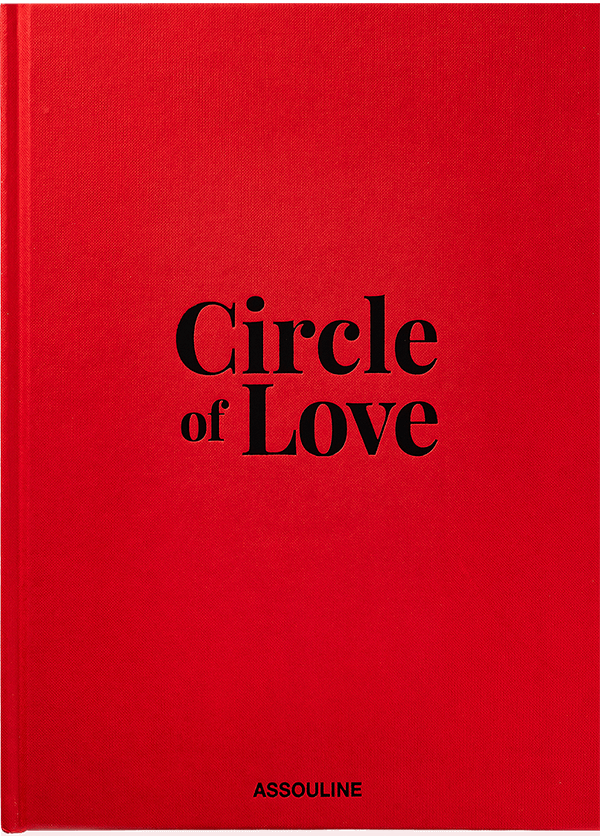X



” Women are the deliberate target of war’s greatest crimes, as a means of destroying communities. The Intisar Foundation seeks to enable these women to restore their lives. I can’t think of a more vital mission. “
Please tell us more about why you decided to lend your invaluable support to the Intisar Foundation?
In the first instance, I am a huge admirer of our Founder and Chairwoman HH Sheikha Intisar, with whom I have had the privilege to work on the Board of Lebanese American University.
Above all, I want to support the foundation’s work with women with who have experienced the extreme trauma of war and displacement. Thanks to the many pioneers in the field of women’s rights I have met over the years, I had already come to understand that the status of women is the single most important issue in the Middle East.
But it was only through an interview with Farah Wardani, a Professional Theater Facilitator and the foundation’s drama therapist, in a video produced by the foundation that I understood that women are the deliberate target of war’s greatest crimes, as a means of destroying communities. The Intisar Foundation seeks to enable these women to restore their lives. I can’t think of a more vital mission.
What is your opinion on the organisations and institutions working in the field of mental health support to Arab women affected by war and violence?
I think these organisations are leaders among those who strive to heal the fabric of the Middle Eastern society. There seems to be an endless supply of malignant actors, both internal and external, that through greed, intolerance, and thirst for power have blighted the lives of millions of women and men in the region. The women – and it is mostly women – who work with those traumatised by this wilful violence are heroes to me.
Please give us your opinion on the Intisar Foundation’s work and achievements since inception in 2019 until today.
The record speaks for itself, with achievements in the field, in academia, in social media outreach, and in cooperating with other organisations. The work in the refugee camps has had a remarkable record of success. The foundation has shown tremendous adaptability during the Covid-19 lockdowns to deliver their sessions virtually. Meanwhile, there has been success in grant applications to support research. Crucially, the message of what the foundation is doing is being effectively communicated through social media. And the foundation has an outstanding team and has also successfully recruited prominent and committed board members whom it is my privilege to have met since joining.
” A lot of people in Lebanon talk about how the best people have left the country because of the terrible economic hardship. However, after my meeting with the Intisar Foundation team, I can emphatically say that the best people are still very much in Lebanon, committed to making the lives of these women better, and in doing so, being a force for positive change in Lebanese society as a whole. ”
Recently, you had an opportunity to visit Lebanon and meet with our team and Fatima Khalifeh, a success story of the foundation. Please share with us your impressions after these meetings?
I guess the most concise way I can express my impression is that I would like to be more like these people. What a remarkable group! There is such a strong balance within it between academic, teaching, technical, social media, and operational expertise. I was so impressed with the respect that the team members have for each other. Each one spoke in turn, and spoke so eloquently and with such passion about what they do.
A lot of people in Lebanon talk about how the best people have left the country because of the terrible economic hardship. However, after my meeting with the Intisar Foundation team, I can emphatically say that the best people are still very much in Lebanon, committed to making the lives of these women better, and in doing so, being a force for positive change in Lebanese society as a whole.
As for Fatima, I don’t really know what to say. She is extraordinary. Clearly, the most impressive aspect of her story is her success in recapturing her life from one of loss and victimisation to that of a successful entrepreneur. That she credits the foundation’s drama therapy programme as instrumental to this transformation says it all in a way. But I was particularly touched by her story of how the therapy enabled her to reconnect with her children and shed the anger she had transmitted to her own family. Hearing that aspect of her story was deeply moving to me.
” To be a vulnerable person dealing with trauma while trying to manage a family in the difficult socio-economic circumstances in Lebanon – it is beyond my ability to understand how they can cope. “
What do you consider to be the most pressing challenges faced by Arab women affected by war and violence in 2022?
I don’t know whether the challenges faced by these Arab women differ in 2022 as opposed to any previous year, though I suspect that with little hope for change on the horizon, the accumulated burden becomes harder to bear.
For those living in Lebanon, the environmental problems raise the acuity of the challenges facing vulnerable people. The value of whatever cash people have has evaporated, prices have soared, 70% of the population is below the poverty line. With so many people living in hardship, will there be empathy left over for the victims of the endless conflicts in the area?
The health system of the country is on its heels and medical supplies are scarce. The educational system is under extreme pressure because teachers and administrators are now receiving a pittance. Services provided by the state have reduced dramatically. To be a vulnerable person dealing with trauma while trying to manage a family in the difficult socio-economic circumstances in Lebanon – it is beyond my ability to understand how they can cope.
What would you like the Intisar Foundation team to achieve in the future?
I think what the team is planning to do is what we would all like them to achieve, namely to extend the reach of the drama therapy programmes to more women. Clearly the more that can be done on a face-to face basis, the better.
But the success of the online sessions suggests that the foundation’s expertise can be delivered to a larger set of women at a rapid pace using these technologies. I applaud the foundation’s plans in this regard.
I also hope that the profile of the organisation is raised much higher internationally, whether in the MENA region, Europe, the United States, or elsewhere. This is to secure the additional resources needed for expansion and to draw attention both to the deep injustice experienced by Arab women as a result of war and to the therapy work that the foundation is doing to allow them to reclaim their lives.
” The mental health of the victims of war tends to be less well understood by the public and policy makers than physical harm or property loss. The needs of women who have suffered mental trauma from their experiences of war must be protected by policy and within the law. Do what you can to get your message to people within these fields so that these protections become imbedded in policy and law. “
What would you advise organisations providing mental health support to war-affected populations, especially in the Arab world, in 2022?
I don’t really like to give advice, especially to people like the members of the foundation’s team who have far greater expertise in this field than I could ever have, and who have done so much so well.
But if I could reframe the question to be “what might you advise your daughter if she were working for such an organisation (a father’s prerogative)?”, I might say the following:
1) Ensure that the widest possible audience is aware of the scale of the problem of mental health for these populations, the source of the problem, the social and moral imperative of serving those impacted by the violence of war, and the way in which the work of organisations like the Intisar Foundation can be part of the solution. The mission is a vital one and needs to be heard.
2) The mental health of the victims of war tends to be less well understood by the public and policy makers than physical harm or property loss. The needs of women who have suffered mental trauma from their experiences of war must be protected by policy and within the law. Do what you can to get your message to people within these fields so that these protections become imbedded in policy and law.
3) As daunting as the task is of helping the many women who are victims of war trauma, the foundation and other institutions have a record of demonstrable success, which, together with your belief in the trueness of the mission, should encourage and embolden you to be ambitious as to the scale of what can be accomplished.

Officially registered as a humanitarian organisation with the Charity Commission for England and Wales in 2019, Intisar Foundation is the first charitable organisation in the Middle East dedicated to providing psychological support programmes of drama therapy to Arab women affected by the brutality of war and violence.
Intisar Foundation
McCarthy Denning, Suite 102,
70 Mark Lane, London, EC3R 7NQ
UK Registration Charity Number: 1182384

For more than a month, we are witnessing how international humanitarian law fails to protect Palestinian mothers and children.
Day after day, we have been lamenting and denouncing new acts of violence that brought injustice and the bemoaning loss of innocent lives in Gaza.
And yet, Palestinians in Gaza still face new perils with every next hour.
In writing this letter to the world as a demand for action to end this suffering, I join millions of others who have condemned the continued Israeli aggression and call for an immediate ceasefire.
We at Intisar Foundation also invite you to join us in working on preventing this trauma to linger and gnaw through another generation of Palestinians, and Arabs in general.
The mission of Intisar Foundation is to bring Peace to the Arab world through the psychological recovery of Arab women traumatised by war and violence, which can result in the women stopping the continued cycle of violence inflicted on or by them.
In this way, our work helps Arab homes traumatised by violence become more Peaceful again.
The ripple effect of this outcome can be that Peace flowcharts from one Arab home to another, from one Arab community to another, reaching and affecting our whole region.
In its very essence, therefore, Intisar Foundation’s work has always been about breaking the chains of trans-generational trauma.
While I salute people around the world confronting this injustice – from the world’s best universities, influencers, civil society activists and organisations, to ordinary people taking to streets and social media to raise their voices for Peace – I am now certain that we will not resolve the Palestinian crisis only with ceasefires, humanitarian aid, or rebuilding their homes and neighbourhoods.
We need to recover and protect the souls of current and future generations of Palestinians, and all Arabs, from this trauma.
To that end, Intisar Foundation is committed to turning this terrible man-made tragedy into a healing woman-led victory for Palestine, for humanity!
Intisar AlSabah
Leave a Reply